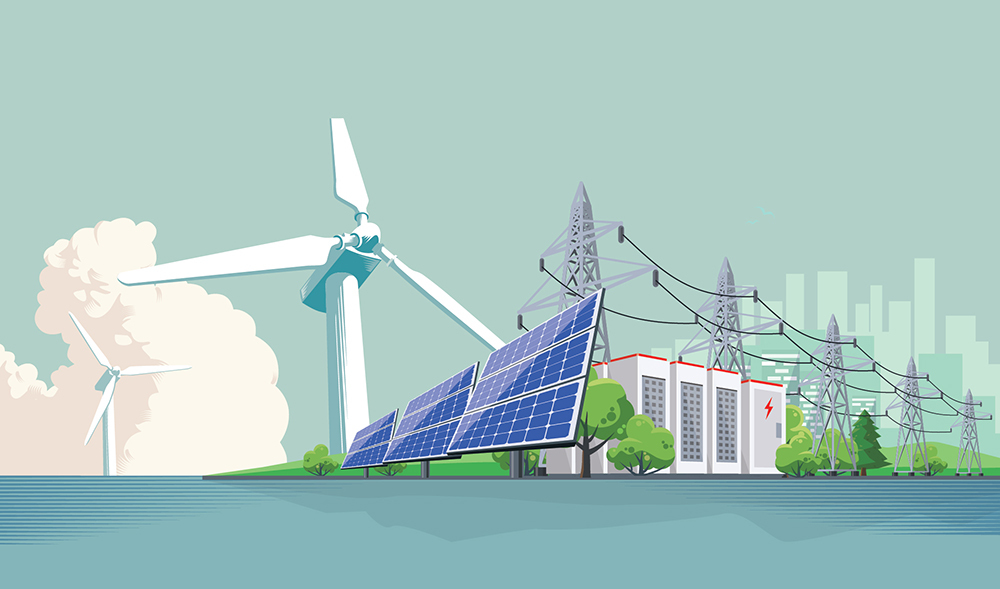
Electricity plays a crucial role in modern society, powering our homes, businesses, industries, and essential infrastructure. It has become an indispensable part of our daily lives, enabling communication, transportation, healthcare, education, and countless other activities. The availability of reliable and affordable electricity is essential for socio-economic development, improving quality of life, and driving progress in various sectors.
As the world continues to develop at an unprecedented rate, the rising costs of traditional fossil fuels have become a pressing concern. Limited supply, geopolitical tensions, and environmental impacts associated with fossil fuel extraction and consumption have prompted a growing need for sustainable and cost-effective alternatives. In this context, solar energy has emerged as a highly promising and preferable solution to meet the increasing energy demands of the modern era.
Solar energy, derived from the radiant light and heat of the sun, is harnessed through photovoltaic (PV) cells, which convert sunlight into electricity. Unlike fossil fuels, solar energy is renewable and inexhaustible. The sun’s energy is expected to endure for billions of years, making solar power a virtually limitless resource. Moreover, solar energy is a clean source of power that produces minimal greenhouse gas emissions, contributing significantly to mitigating climate change and reducing environmental pollution.

One of the key advantages of solar energy lies in its long-term cost-effectiveness. While the initial investment in solar panels and associated equipment may appear substantial, the operational costs of solar energy systems are relatively low. Once installed, solar panels require minimal maintenance, and the sunlight they convert into electricity is free. Over time, solar energy systems can lead to substantial savings on energy bills, offsetting the upfront investment and providing a reliable and predictable return on investment.
The resilience of solar energy systems is another compelling aspect. Unlike traditional power grids, which are susceptible to outages and disruptions, solar energy systems can operate independently or in conjunction with the grid. By incorporating energy storage solutions such as batteries, solar power enables households and businesses to have access to electricity even during grid failures or emergencies. This energy independence not only ensures an uninterrupted power supply but also enhances overall grid stability and resilience.
The environmental benefits of solar energy cannot be overstated. Solar power generation produces zero emissions during its operation, significantly reducing the carbon footprint compared to fossil fuel-based electricity generation. By transitioning to solar energy, individuals and organizations can actively contribute to mitigating climate change, improving air quality, and safeguarding ecosystems. The reduced reliance on fossil fuels also decreases the environmental risks associated with extraction, transport, and combustion, protecting ecosystems and minimizing the ecological impact of energy production.
The adoption and accessibility of solar energy have grown rapidly in recent years. Governments, recognizing the importance of renewable energy, have implemented various financial incentives, tax credits, and subsidies to promote the installation of solar panels. These incentives aim to alleviate the initial costs associated with solar energy systems, making them more affordable and accessible to a broader range of individuals and businesses. Technological advancements in solar panel efficiency, durability, and affordability have further contributed to the widespread adoption of solar energy, making it a viable and increasingly competitive option for power generation.
In conclusion, solar energy represents a highly preferable alternative to traditional fossil fuels in power generation. Its renewable and clean nature, coupled with its long-term cost-effectiveness, resilience, and environmental benefits, positions solar energy as a key pillar of the future energy landscape. By embracing solar energy, individuals and businesses can reduce their dependence on fossil fuels, lower their energy bills, enhance their energy independence, and actively contribute to a more sustainable and resilient world. The continued development and integration of solar energy into our energy systems will pave the way for a brighter and greener future for generations to come.

